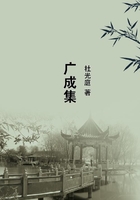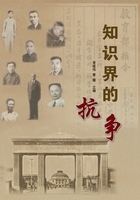Huss and Jerome The gospel had been planted in Bohemia as early as the ninth century. The Bible was translated, and public worship was conducted, in the language of the people. But as the power of the pope increased, so the word of God was obscured. Gregory VII, who had taken it upon himself to humble the pride of kings, was no less intent upon enslaving the people, and accordingly a bull was issued forbidding public worship to be conducted in the Bohemian tongue.
The pope declared that "it was pleasing to the Omnipotent that His worship should be celebrated in an unknown language, and that may evils and heresies had arisen from not observing this rule."--Wylie, b. 3, ch. 1. Thus Rome decreed that the light of God's word should be extinguished and the people should be shut up in darkness. But Heaven had provided other agencies for the preservation of the church. Many of the Waldenses and Albigenses, driven by persecution from their homes in France and Italy, came to Bohemia. Though they dared not teach openly, they labored zealously in secret. Thus the true faith was preserved from century to century.
Before the days of Huss there were men in Bohemia who rose up to condemn openly the corruption in the church and the profligacy of the people. Their labors excited widespread interest. The fears of the hierarchy were roused, and persecution was opened against the disciples of the gospel.
Driven to worship in the forests and the mountains, they were hunted by soldiers, and many were put to death. After a time it was decreed that all who departed from the Romish worship should be burned. But while the Christians yielded up their lives, they looked forward to the triumph of their cause. One of those who "taught that salvation was only to be found by faith in the crucified Saviour," declared when dying: "The rage of the enemies of the truth now prevails against us, but it will not be forever;there shall arise one from among the common people, without sword or authority, and against him they shall not be able to prevail." --Ibid., b.
3, ch. 1. Luther's time was yet far distant; but already one was rising, whose testimony against Rome would stir the nations.
John Huss was of humble birth, and was early left an orphan by the death of his father. His pious mother, regarding education and the fear of God as the most valuable of possessions, sought to secure this heritage for her son.
Huss studied at the provincial school, and then repaired to the university at Prague, receiving admission as a charity scholar. He was accompanied on the journey to Prague by his mother; widowed and poor, she had no gifts of worldly wealth to bestow upon her son, but as they drew near to the great city, she kneeled down beside the fatherless youth and invoked for him the blessing of their Father in heaven. Little did that mother realize how her prayer was to be answered.
At the university, Huss soon distinguished himself by his untiring application and rapid progress, while his blameless life and gentle, winning deportment gained him universal esteem. He was a sincere adherent of the Roman Church and an earnest seeker for the spiritual blessings which it professes to bestow. On the occasion of a jubilee he went to confession, paid the last few coins in his scanty store, and joined in the processions, that he might share in the absolution promised. After completing his college course, he entered the priesthood, and rapidly attaining to eminence, he soon became attached to the court of the king. He was also made professor and afterward rector of the university where he had received his education.
In a few years the humble charity scholar had become the pride of his country, and his name was renowned throughout Europe.
But it was in another field that Huss began the work of reform. Several years after taking priest's orders he was appointed preacher of the chapel of Bethlehem. The founder of this chapel had advocated, as a matter of great importance, the preaching of the Scriptures in the language of the people.
Notwithstanding Rome's opposition to this practice, it had not been wholly discontinued in Bohemia. But there was great ignorance of the Bible, and the worst vices prevailed among the people of all ranks. These evils Huss unsparingly denounced, appealing to the word of God to enforce the principles of truth and purity which he inculcated.
A citizen of Prague, Jerome, who afterward became so closely associated with Huss, had, on returning from England, brought with him the writings of Wycliffe. The queen of England, who had been a convert to Wycliffe's teachings, was a Bohemian princess, and through her influence also the Reformer's works were widely circulated in her native country. These works Huss read with interest; he believed their author to be a sincere Christian and was inclined to regard with favor the reforms which he advocated.
Already, though he knew it not, Huss had entered upon a path which was to lead him far away from Rome.
About this time there arrived in Prague two strangers from England, men of learning, who had received the light and had come to spread it in this distant land. Beginning with an open attack on the pope's supremacy, they were soon silenced by the authorities; but being unwilling to relinquish their purpose, they had recourse to other measures. Being artists as well as preachers, they proceeded to exercise their skill. In a place open to the public they drew two pictures. One represented the entrance of Christ into Jerusalem, "meek, and sitting upon an ass" (Matthew 21:5), and followed by His disciples in travel-worn garments and with naked feet. The other picture portrayed a pontifical procession--the pope arrayed in his rich robes and triple crown, mounted upon a horse magnificently adorned, preceded by trumpeters and followed by cardinals and prelates in dazzling array.















